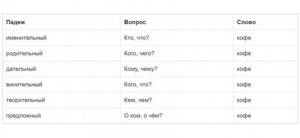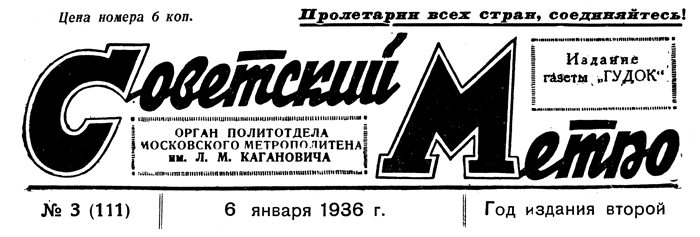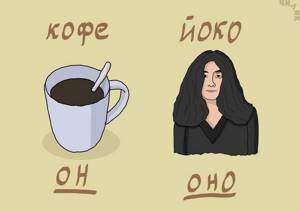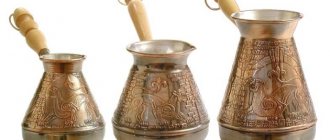The language of any country undergoes various changes over time: foreign words are fixed, the names of modern technical inventions are introduced, and forms of use are simplified. However, there is still ongoing debate about what kind of “coffee” and how it should be said.
What gender does the word coffee belong to?
In the coffee world, due to the emergence of different preparation methods, varieties of berries, names of drinks, many new terms have appeared over the past decades.
Information from history
In Russia, coffee has been known since the 17th century, when a doctor prescribed this drink to Tsar Alexei Mikhailovich as a cure for “arrogance, runny nose and headaches.” It began to be used as a tasty drink under Peter I, after the emperor became addicted to it in Amsterdam. Returning from abroad, in 1718 he issued a decree that guests should be served not only tea, but also treated to a new invigorating drink at assemblies and in the Kunstkamera.
In 1718, Peter I issued a decree ordering that, along with tea, guests should be served a new invigorating drink - coffee.
During the times of the Russian Empire, in addition to the word “coffee”, they also used “coffee” or “coffee”. Writer N.S. Leskov, in his work “Pabubniks” of 1885, writes both options, but for the Russian author they have different shades. “Kofiy” serves to convey village speech.
Forms that end in -y ceased to be the linguistic norm at the end of the 18th century. They are perceived as ignorant and vernacular. The main option remains “coffee”.
Linguistic history
Resolving confusion regarding the gender of this word is very simple. Let's approach this issue from a linguistic perspective, relying on common dictionaries. They are the legal basis of every language in the world.
This word first appeared in the Russian language at the turn of the 17th–18th centuries , when Tsar Alexei Mikhailovich brought coffee beans to Russian territory for the first time. This happened back in 1665, but the drink was very expensive and was available only to noble and rich people. It was popularized by Peter the Great, who introduced fashion to various objects, things and everyday habits that were in demand in Europe.
As the years passed, the pronunciation of this word changed. Most often in literary works of the 18th-19th centuries there is a mention of “coffee”, “coffee”, “cafe” and traditional “coffee”, which has survived to this day. All these names have their place because they originate from foreign languages. In particular, in Dutch the drink sounds like “koffie”. It was from there that Peter the Great borrowed the name, which was used for a long time in the royal circle.
Interesting fact : the name of the drink was also influenced by its homeland, namely Ethiopia with the province of Kaffa. It is there that not only excellent varieties grow, but even wild coffee crops.
More familiar forms of this word are found in Turkey (kahve) and Arab countries (gahwa), which not only grow coffee beans, but also masterfully brew this drink. They are the ones who wear the masculine uniform. Since the mid-twentieth century, dictionaries have recorded the only correct pronunciation and use of the word in the literary norm. Although in colloquial speech “strong coffee” is still considered an acceptable form.
Interesting: When and how did punctuation marks appear?
Several years ago they tried to introduce the neuter gender into official circulation. However, linguists are skeptical about this turn of events. This does not lead to the overall development of the population, but to the adaptation of low levels of education.
The meaning of the word "coffee"
There are several assumptions about where this word came from, but this is still not known for certain.
The Arabic word for a type of wine is qahwah; in Turkish - kahve, which could become the ancestor of the word “coffee”. Perhaps the name of the aromatic drink was given by the Ethiopian region of Kaffa, which is the birthplace of the coffee tree. In Kaffe itself, coffee is called “buno”. Wikipedia reports that in Europe the name of this aromatic drink was the Dutch word koffie, which in 1598 came into English as coffee.
In Russian explanatory dictionaries there are several meanings of the term, for example:
- A plant that produces fruits and grains.
- Coffee beans.
- Ground powder from these grains.
- A drink based on coffee beans.

The birthplace of the coffee tree is the Ethiopian region of Kaffa.
How to speak correctly
According to the rules of the Russian language, units of speech ending with the letter -e belong to the neuter gender. However, for example, in the explanatory dictionaries of S. Ozhegov and V. Dahl, the noun “coffee” is classified as a masculine grammatical feature.
There is no clear answer why the name of the invigorating drink began to be used in the masculine gender.
Why has coffee always been classified as masculine?
It is believed that this drink was first mentioned in Russia in the neuter gender. From what moment it began to be used in men’s clothing is unknown. This may have happened under the influence of the elite, who sought to distinguish themselves and emphasize their status in speech: saying “my coffee” was an indicator of prestige.
There is also a version that at first they said “coffee” and “coffee” in the masculine gender, so this term began to be used in the same way. For example, “... you should drink your own coffee” (A. Chakovsky, “Blockade”, 1968) or “She waited until the valet put out the coffee and left” (L. Tolstoy, “War and Peace”, 1867-1869).
Nevertheless, there is no exact confirmation that these obsolete forms were the original ones and that the grammatical feature was fixed from them. According to the research of philologist M. Eliferova, in 1700-1800. the form “coffee” occurred 15 times, “coffee” 25 times, and the form “coffee” 84 times. It follows from this that already in the 18th century. the predominant option was the one well known to everyone.
Can it be used in the neuter gender?
Even before the beginning of the 2000s. in modern Russian, only the masculine gender was considered correct, and only in some dictionaries did colloquial speech allow the neuter gender. But already in 2009, according to the order of the Ministry of Education, it became possible to use this noun both in m.r. and in sr. r., i.e. since then, “delicious coffee” has ceased to be a colloquial option and an indicator of illiteracy.
Many people disagree with this decision and try to stick to only one form.
How did coffee become “it” again?
Over time, any borrowings begin to obey the norms and rules that have developed in the Russian language. Until then, they are essentially in a fever. This happened with the word yogurt (surprise: initially the emphasis fell on U! - so this is not an innovation, but an outdated version of the norm), the same thing is happening now with the word “matcha”, which has not yet been determined either by gender or rules declination.

As for coffee, the truth is that in Russian, nouns ending in -e and indeclinable words of foreign origin in the vast majority of cases belong to... the neuter gender! For example, cafes, coupes, cocoa, cinema are of the neuter kind, and no one complains. So it is not surprising that the word “coffee” stubbornly strives for an “average” version. We must give him his due, it has held on to its “male” positions for an incredibly long time.
Ground coffee Lebo “Prince”, for Turkish, 100 g 79 rub.
Coffee beans LavAzza “Qualita Oro”, 500 g 752 rub.
Ground coffee Lavazza “Crema e Gusto”, 250 g 258 rub.
Lavazza “Qualita Oro” coffee beans, 250 g 351 rub.
Ground coffee Lebo “Extra”, for Turkish, 75 g 61 rub.
Ground coffee Lavazza “Qualita Oro”, in a tin can, 250 g 400 rub.
Bean coffee Bushido “Red Katana”, 1000 g 1921 rub.
Coffee beans Lavazza “Qualita Oro”, 1000 g 1550 rub.
Choose coffee on TEA.ru
Meanwhile, ordinary people, who had no idea about linguistic subtleties, but had a good sense of their native language, always sincerely believed that coffee was exactly “it.” Like the sea, the sun, the field and the window. Therefore, this contradiction arose between the literary norm and the colloquial one, which still haunts many.

By the way, few people remember this, but “metro” also used to be masculine (“metropolitan”!), and then became neuter – according to the same principle as coffee. There was a newspaper “Soviet Metro”. And even the country-famous Utesov sang:
I forged you with choice horseshoes,
I covered the cab with clean varnish,
But the metro sparkled with oak railings,
He immediately bewitched all the riders.
In the pre-revolutionary press, coffee could be used in both genders (even eminent writers and poets said both “he” and “it” without hesitation); in the post-revolutionary press, the word acquired a masculine gender and was included in dictionaries in this form, but most simple people in the post-Soviet space used the neuter gender in conversations. And in 2002, the “Russian Spelling Dictionary” was published, edited by Lopatin, which stated that it is acceptable to use both options, but the masculine gender is considered literary, and the neuter gender is considered colloquial.
This happened not because the academician of the Russian Academy of Sciences “took it into his head”, but because of its general use. Experts never invent changes themselves, but observe them and record stable patterns.
What is right now and what will happen next?
Since September 1, 2009, according to the order of the Ministry of Education and Science, the gender of the word coffee has become variable. That is, both “my coffee” and “my coffee” are a literary norm. True, in some dictionaries there is still a note that the neuter gender is a colloquial option. Which, however, does not make it wrong.

Probably in about twenty years delicious hot black coffee
will not surprise anyone... Although, who knows, maybe the norms will change again.
Many people fundamentally disagree with this state of affairs, which is why on the Internet people can be demonstratively “stoned” for neuter gender. However, let's be honest, only what has already died does not develop. And coffee (like the Russian language) lived, lives and will live for a long time in our hearts, in articles and posts, cozy cafes and cute glasses.
We wish everyone delicious coffee and strong nerves!
Has anything changed in Russian dictionaries?
New alternatives for the use of some words, their grammatical features, like “coffee”, appeared in 2009 in the “Big Phraseological Dictionary of the Russian Language”, “Spelling Dictionary of the Russian Language”, “Dictionary of Stresses of the Russian Language” and “Grammar Dictionary of the Russian Language: Word change." The authors added a second sign “cf. R." and removed the “colloquial” inscription.
Since then, the invigorating drink can be officially used in both genders, although the male one is considered the main one, and the middle one is considered additional.
Declension by case
In Russian, this word is borrowed and refers to nouns denoting various substances (sugar, cream, blood, etc.), so it cannot be unambiguously classified as either singular or plural.

The word "coffee" is inflected the same way, regardless of meaning, case or number.
Usage examples:
- guests treated to (what?) coffee - TV. P.;
- wash the cup after (what?) coffee - R. p.;
- please make (what?) coffee - V. p.
Dictionaries indicate that this word will be declined in the same way, regardless of meaning, case and number.
Additional Information
Today in the coffee industry there are many different types of brewing, serving and recipes for an invigorating drink.
However, not all correspond to the same gender, and some of them still do not have a fixed grammatical norm in Russian dictionaries.
In a cafe you must use:
- Americano - not in dictionaries, but is more often used by analogy with “coffee” in the m.r.
- Cappuccino - you can say in m.r. or cf. R.
- Latte - it is permissible to speak in both m.r. and sr. R.
- Macchiato - not fixed, presumably can be used in both m.r. and cf. R.
- Espresso - should be used in ml.
The use of the noun “coffee” is possible both in the masculine and in the neuter gender “coffee-on”; modern language norms allow both options. Everyone can decide for themselves which grammatical form to choose. However, few people know about the changes made more than 10 years ago, so “good coffee” may still be perceived by others as colloquial.
Is it coffee or it, which is right?
The question “What kind of coffee?” incredibly popular and has already set people on edge. For many years now, writers have been fighting for the masculine gender, self-confident people argue with them, defending the form “it,” and those who don’t know rush between the two sides, trying to understand which option is the right one. This gives rise to the conflicting definitions of “delicious” or “delicious.” And yet, what kind of coffee? Is coffee masculine or neuter?
The history of philology is undoubtedly an important and reliable science, but, unfortunately, it cannot always provide answers to all questions. It cannot be denied that language resembles a living organism; it is constantly changing and transforming. Based only on the historical forms of words, it is impossible to say with certainty what gender the word coffee belongs to. Of course, when language institutions change any norms, they first note them, but do not immediately introduce them; dictionaries remain unchanged, trying to preserve those old rules that are a strong basis for the philological culture of any nation. Only when half or most of the native speakers begin to speak in a new way is the change finally consolidated in publications. This is what happened with the gender of the word coffee.
Before the war, the word “metro” was also masculine, because the metro is he.

In three major dictionaries, the word “coffee” is masculine. Official changes were made in 2002. Until this moment, there were three main dictionaries that defined conversational norms (they still contain information about how to speak correctly): the explanatory dictionary of the well-known Dahl (written in 1880-1882); dictionary of the no less famous Ozhegov (1949); modern and less frequently used dictionary by Efremova (1996).
Good to know: The three main Russian dictionaries indicate that coffee in Russian is exclusively “on”, so this rule remains the main one in literary speech, which does not allow the use of any other options. And in questions about coffee, Wikipedia indicates the gender exclusively as masculine, with only a rare acceptable opportunity to use it as a neuter word. But in 2002, the situation changed, the “Russian Spelling Dictionary” created by Lopatin (also briefly called “ROS”) published data according to which drinking coffee in the masculine and neuter gender is acceptable for colloquial speech and is considered absolutely correct.
However, for a huge part of the population, such a decision made by the Ministry of Education was correct - after all, on the streets every now and then you can hear the neuter form of the word. On the other hand, we should not forget that the use of the pronoun “he” is appropriate in relation to a drink, namely the one that is poured into cups, but if the interlocutors are discussing the plant itself, as such, with leaves, fruits, then it would be quite correct to call pronoun "it". Other forms of the word are determined individually, for example, coffee grounds or coffee grounds will be feminine.
Video on what type of word “coffee”?

Is it coffee or it, which is right?

Number of votes: 137 3
5
1
137
Was the information helpful? Rate and leave a comment? Better yet, share!
Trump 05 December 2021, 19:56
The author of the article is a sucker. The neuter gender was officially assigned to coffee on September 1, 2016 by order of the Ministry of Education of the Russian Federation. It turns out that two forms of using the word coffee are formally considered correct.
It’s a pity that you didn’t read to the end, that’s exactly what it says there)))
Tekle October 20, 2021, 11:00
She. Because bunna. You definitely haven't been to Ethiopia. ))
Thanks for the information, but the video is not ours)
Hott May 18, 2021, 10:30 pm
This is the only coffee, on the collective farm a different kind is acceptable, unfortunately...
Comments
We will be glad if you share your opinion or add to a note or article.











